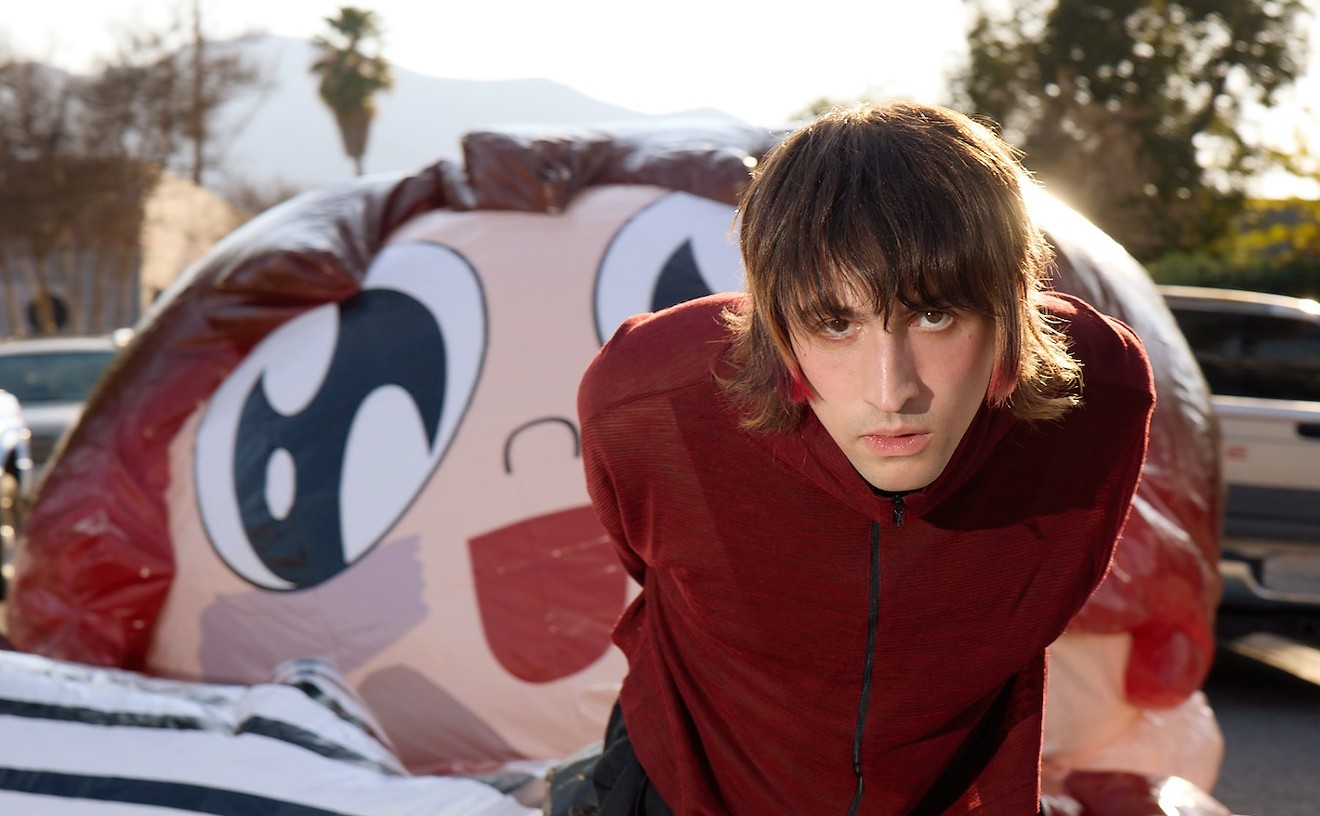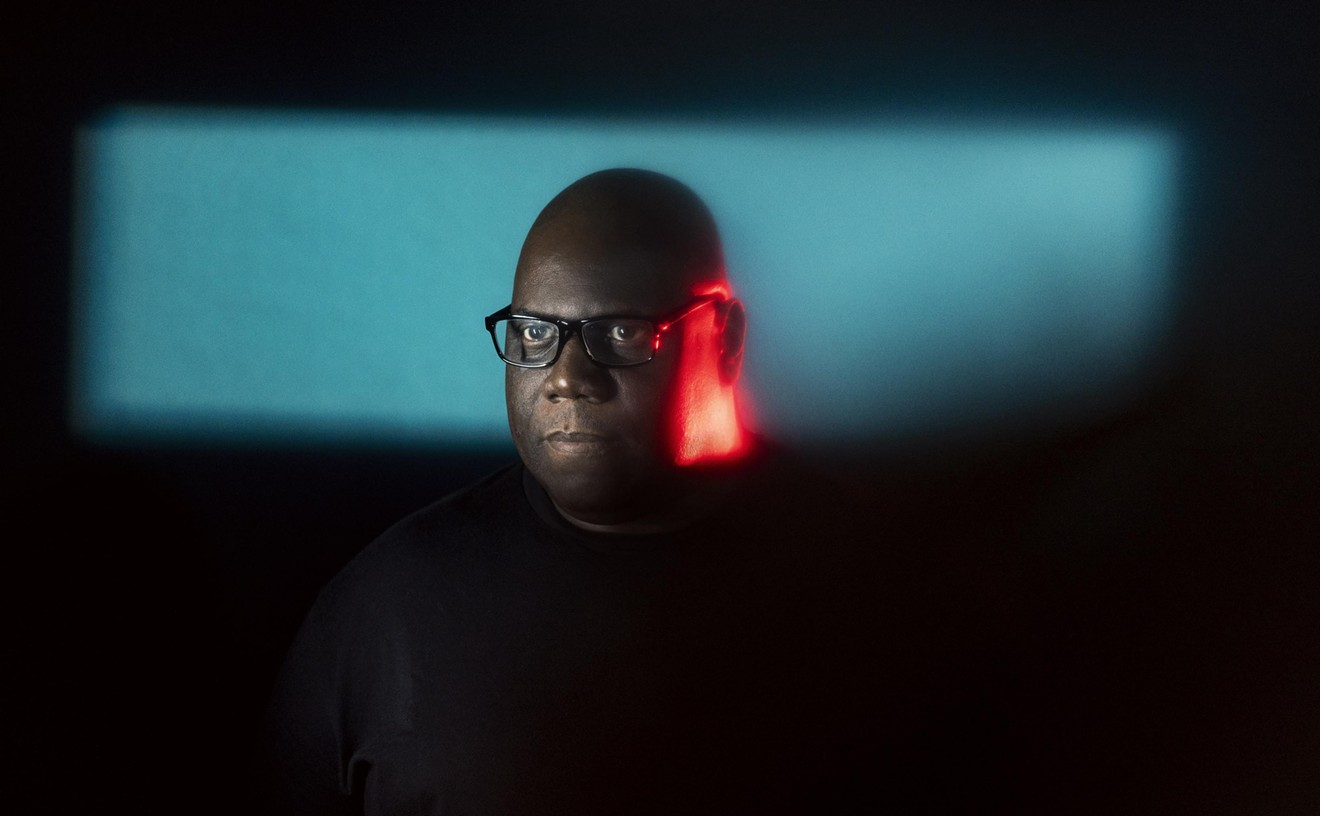"How did Latin jazz begin in Cuba?" he asks in the hushed tones of a parent recounting an oft-told bedtime story. "At the end of the last century, the bands in Havana played at public dances in the park on Sundays. They performed the popular music of the time. But at night the musicians got together and played their music. They played blues and spirituals, together with guaguancó and other forms of Afro-Cuban music. That is when the relationship began. Already in the first decade of this century there were Cuban groups playing Dixieland jazz and ragtime." Caught up in his tale, Valdes waxes on about New York in the Thirties and Forties, about Cuban trumpeter Mario Bauza's collaborations with Cab Calloway and Dizzy Gillespie, and about Machito's groundbreaking fusion of jazz and Latin rhythms.
Such stories have occupied Valdes's thoughts and dreams since he was a child in the Forties, when his father Bebo would take him along to the Tropicana nightclub, where Bebo played piano. There the young Valdes heard live sets from Gillespie, Buddy Rich, Milt Jackson, Sarah Vaughan, and Nat King Cole, who while in Havana recorded a hit Spanish album, arranged by Bebo. Valdes has had a lifelong obsession with the reciprocal relationship between American and Latin players and their music. At age 58 he remains true to the goal he had when he formed his first jazz trio at age 16: "I want to enrich Latin jazz."
Performing with his jazz quartet on a new album, Briyumba Palo Congo (religion of the Congo), just released by Blue Note Records, the Cuban pianist pays homage to two true "crossover" pioneers, Duke Ellington and George Gershwin. With his young band (conguero Roberto Vizcaino Guillot, drummer Raul Pineda, and bassist Francisco Rubio) Valdes performs Ellington's classic Latin-tinged "Caravan" (written by Puerto Rican trombonist/composer Juan Tizol) as a rowdy celebration, with carnivalesque rumba percussion. On his bolero version of George Gershwin's "Embraceable You," Valdes plays the standard as a sweet caress. His version of "Rhapsody in Blue," on the other hand, is a swinging ballroom dance tune, arranged with danzon and cha-cha-cha rhythms.
The title track, "Briyumba Palo Congo," as well as other original compositions on the new album, stem from Valdes's long-time study of and participation in Afro-Cuban ritual music. "Briyumba Palo Congo" honors the Briyumba and Palo religions of the Congolese people, practiced in their syncretic versions in Cuba. Valdes describes the song, which features a spoken introduction in a Congolese dialect and soulful chanting by Valdes's sister, Mayra, as "a prayer to the fundamental aspects of the Congo religion."
"Briyumba Palo Congo" and other Afro-Cuban-based works such as "Yemaya" (the title cut on another just-released Blue Note album featuring Valdes's band Irakere) are rich, sweeping pieces, almost operatic in their dignified opulence. Elsewhere Valdes's playing is almost painfully intimate. Rather than perfunctory crossover gestures, his compositions and arrangements comprise a deep fusion of Afro-Cuban, Latin, and American styles, as he shifts effortlessly from rapid-fire drilling to honeyed melodies, all with a touch of humor and, always, extreme grace.
Valdes's versatility has long made him a musician's musician, revered by his colleagues in this nation since the Seventies, when Irakere won a Grammy Award. This past year Valdes was again in the spotlight with Grammy nominations for Best Latin Jazz Performance for his solo disc Bele Bele en la Habana and for Irakere's Yemaya as Best Tropical Album. Valdes attended the ceremony in a tuxedo custom-made in Miami for his six-and-a-half foot-tall proportions. He didn't win but the nominations were one more sign that Valdes is finally getting the widespread international recognition he has long deserved. The cognoscenti at least, are already rabid fans. In April he played two weeks of sold-out shows at New York City's venerable Village Vanguard jazz club.
Valdes's high profile was made evident at this past December's Havana International Jazz Festival (organized by Valdes), where Latin luminaries such as Giovanni Hidalgo and Danilo Perez jammed with a crew of Americans including drummer Max Roach and trumpeter Roy Hargrove. Valdes was part of the all-star Latin/American band on Hargrove's 1997 Grammy-winning album Habana, which the Cuban pianist cites as the best example of collaboration between Latin and American musicians in recent history. Valdes says he wants to form similar bands, and would like to put together recording projects with Herbie Hancock, Chick Corea, and McCoy Tyner. "I don't just want to mix American and Cuban music," Valdes stresses. "I want to join together American and Caribbean musicians."
As the master class continues at the Havana conservatory, Valdes places his huge hands on the keyboard and starts to improvise a laid-back blues tune. "But how do I Cubanize it?" he asks the students, then adds a pounding repetitive chord progression -- the Cuban tumbao. "You take the son rhythm mixed with the blues harmony," he says, as his fingers blindingly dance across the keys. "And now this jazz becomes Latin jazz.










